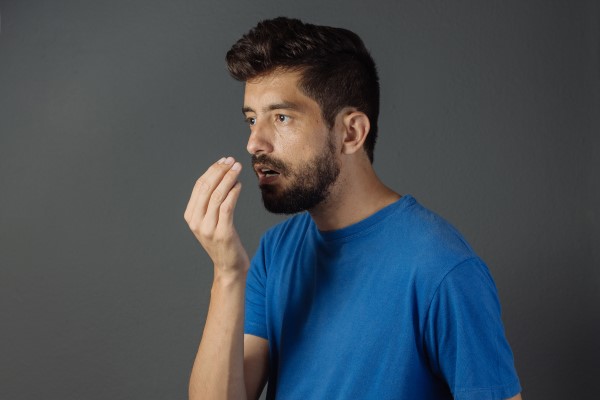Halitosis Related to Foods in Your Diet

If your dental hygiene is good and you brush and floss regularly, your halitosis could be linked to your diet. Diet is known to be a common cause of bad breath. But bad breath does not have to be a problem. There are many ways to fight halitosis and still enjoy the foods you love.
Foods that cause bad breath
Certain foods can affect a person’s breath for hours and contribute to halitosis in other ways. The breakdown of food around and in the teeth can increase bacteria and cause a foul smell. Once the food is digested, odor-causing chemicals are eventually absorbed into the bloodstream and from there, into the lungs. These chemicals are then exhaled. Here are foods that cause bad breath.
Garlic and onions
Garlic and onions are two of the most famous offenders. Garlic does not leave its sulfuric mark on just the tongue. It is also absorbed into the bloodstream, which allows a secondary wave of odor to enter the lungs, where it can escape through the mouth. Once the garlic is absorbed, it emits a bitter scent from the pores. Similar to garlic, the smelly sulfur compounds in onions linger in the mouth and are expelled when a person exhales.
However, bad breath should not be a reason to stop eating garlic and onions completely. People should simply brush and floss after eating these foods. This will help wash away the halitosis-causing agents. Brushing, flossing and rinsing will provide an extra layer of protection.
Coffee and alcohol
Alcoholic drinks and coffee create a favorable environment for the growth of oral bacteria. They also have a drying effect and can cause bad breath. Dry mouth contributes to halitosis by allowing bacteria to survive without them being washed away by saliva. A person who needs a strong cup of coffee should follow it up with a bottle or glass of water. Drinking water regularly, especially at mealtimes, can help get rid of bacteria and alleviate bad breath.
Tuna and fish
For most people, a tuna sandwich is a good lunch, but a strong smell usually lingers afterward. It is encouraged for people to brush their teeth after eating tuna. Chewing sugar-free gum is also advisable. Chewing gum loosens dead cells and food from the teeth, tongue and gums and fosters saliva production. To reduce the fishy odor, fish lovers can splash vinegar or lemon onto the fish before eating.
Fending off halitosis
You do not have to give up foods that contribute to halitosis. You should just know how to fend it off so your breath is ready for any food on the menu. You should remember that a good oral care routine will reduce the risk of bad breath even if your diet consists of strongly scented foods. You should brush at least twice every day and floss at least once every day. This will help you get rid of food stuck between the teeth and ensure that your breath smells good. If you want to learn more about foods that cause halitosis, get in touch with your general dentistry.
Request an appointment here: https://riverfallsfamilydental.com or call River Falls Family Dental at (812) 962-7342 for an appointment in our New Albany office.
Check out what others are saying about our dental services on Yelp: Halitosis in New Albany, IN.
Related Posts
Professional teeth cleaning is an important aspect of routine dental care. In addition to practicing thorough oral hygiene habits that include regular brushing and flossing of the teeth, patients should always maintain biannual dental exams to ensure excellent oral health.The following are a few of the numerous benefits that regular teeth cleanings offer when included…
A chipped tooth can affect your smile's appearance and oral health, leading to discomfort, sensitivity, and self-esteem issues. Fortunately, there are several effective options to restore a tooth's natural look and strength. A variety of treatments are available, depending on the severity of the chip, its location, and your treatment goals.A chipped tooth can result…
Incorporating good habits into routine dental care on a daily basis can help teeth and gums stay as healthy as possible. Regular dental hygiene is associated with reduced plaque, fewer cavities, and less incidence of gum disease over a person's lifetime. Patients do not need to completely overhaul their oral health routines. Instead, implementing a…
A routine dental care plan refers to oral hygiene that a patient performs at home as well as preventative care performed by a dentist on a periodic basis. When a patient has gum disease, the need for dental care is even greater. Some specific requirements may change, and the patient may have treatments that were…
